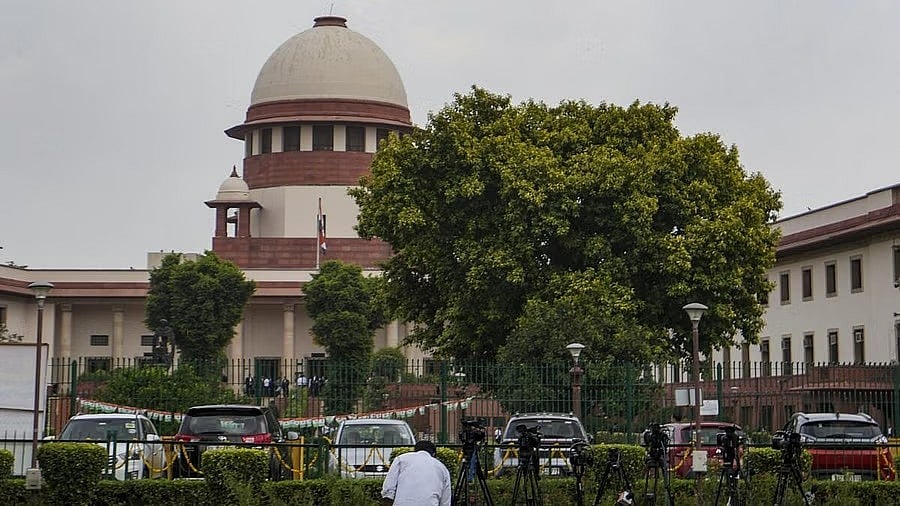
The Supreme Court of India.
Credit: PTI File Photo
New Delhi: The Supreme Court has said, in a long drawn live-in relationship, occasions may arise where parties express their desire or wish to formalise it by a seal of marriage, but that expression of desire, or wish, by itself would not be indicative of relationship being a consequence of that expression of desire or wish.
"A decade or two earlier, live-in relationships might not have been common. But now more and more women are financially independent and have the capacity to take conscious decision of charting their life on their own terms. This financial freedom, inter alia, has led to proliferation of such live-in relationships," a bench of Justices Sanjay Karol and Manoj Misra said.
The court allowed an appeal filed by Ravish Singh Rana against the Uttarakhand High Court's order declining to quash the rape FIR lodged by the woman-complainant.
"In our view, if two able-minded adults reside together as a live-in couple for more than a couple of years and cohabit with each other, a presumption would arise that they voluntarily chose that kind of a relationship fully aware of its consequences," the bench said.
Therefore, the allegation that such a relationship was entered into because there was a promise of marriage is, in the circumstances, unworthy of acceptance, particularly when there is no allegation that such a physical relationship would not have been established had there been no promise to marry, the bench said.
The FIR was lodged on November 23, 2023 with Khatima police station in Udham Singh Nagar district.
Going by the facts of the matter, the bench said on ground of refusal to marry, the appellant cannot be subjected to prosecution for the offence of rape as the parties lived together in a rented accomodation as a couple since 2021.
The other allegations of assault and abuse have not been supported by any material particulars. Even the alleged sexual assault on November 18, 2023 is negated by the recital in the settlement agreement that parties love each other, the court said.
The bench said said the long-drawn relationship and the circumstance of living together and cohabiting with each other would give rise to a presumption that their relationship was based on a valid consent.
The court must not adopt a pedantic approach rather it may, based on the length of such relationship and conduct of the parties, presume implied consent of the parties to be in a relationship regardless of their desire or a wish to convert it into a marital bond, the bench said.
In the case, the court said, the relationship was not merely of knowing each other but of living together as a couple under one roof in a rented accommodation.
The FIR does not allege that the physical relationship was established only because there was a promise of marriage. Besides, the physical relationship continued for over two years without a complaint in between. In such circumstances, a presumption would arise of there being a valid consent for initiating and maintaining the physical relationship that spanned over two years, the bench said.
The court also found the settlement agreement entered by the appellant and the informant on November 19, 2023, which was not disputed, pointed out that the parties had been in love with each other.
